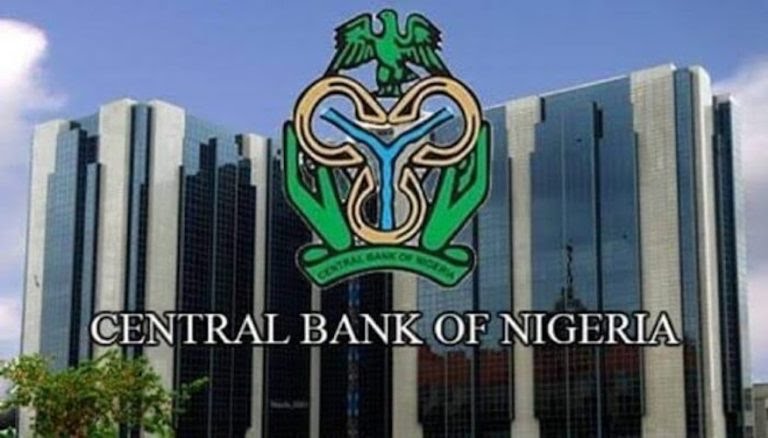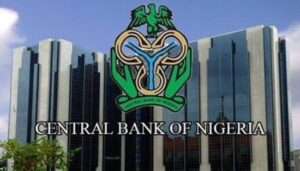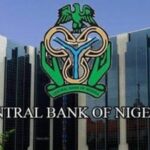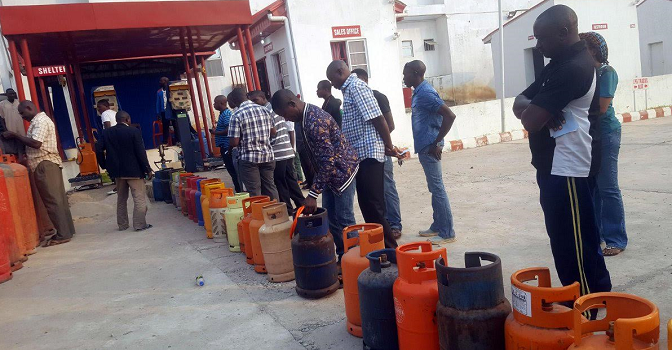
Central Bank Of Nigeria (CBN) launches Nigeria payments system vision 2028
- Nigeria News
- 12.09.2025
- No Comment
- 101
Central Bank Of Nigeria (CBN) launches Nigeria payments system vision 2028

The Central Bank of Nigeria has unveiled a new strategic framework, the Nigeria Payments System Vision 2028, to build a more inclusive, innovative, and secure digital financial ecosystem in the country.
According to a press statement from the apex bank on Wednesday, this launch was announced at the inaugural meeting of the PSV 2028 Project Committee, held in Lagos on Tuesday.
The statement noted that the initiative is designed to build on the successes of earlier frameworks such as PSV 2020 and PSV 2025, with a focus on strengthening financial inclusion, enhancing infrastructure interoperability, and fostering innovation across Nigeria’s financial services sector.
The CBN said the new vision would also position Nigeria’s payments system to be globally competitive in an increasingly digital economy.
During the meeting, Director of the Payments System Policy Department at the CBN, Mr Musa Jimoh, described the initiative as a “national assignment” with the potential to transform how individuals, businesses, and governments interact within the financial ecosystem.
He emphasised that the vision would leverage past successes to address the rapidly growing technological advancements in the payments space.
The CBN noted that the new framework would be developed through an inclusive, stakeholder-led process, involving regulators, banks, fintechs, payment service providers, consumer advocacy groups, and other key players.
This collaborative approach, according to the CBN, would ensure that the strategy meets real-world needs, fosters policy acceptance, and drives innovation through shared responsibility among all involved.
“Reflecting on the journey from the early reforms of 2006 through the milestones of PSV 2020 and PSV 2025, Mr. Jimoh highlighted that the new vision will build on past achievements to deepen financial inclusion, improve infrastructure interoperability, and promote innovation across Nigeria’s financial services sector.
“He observed that while Nigeria’s payment system has made significant progress over the past two decades, the speed of technological advancement and innovation continues to grow. PSV 2028, he explained, presents the country with a unique chance to develop a future-ready framework that is secure, Daily Post Nigeria

“He further explained that the framework would be developed through an inclusive, stakeholder-led process that unites regulators, banks, fintechs, payment service providers, consumer advocacy groups, and other key players. He highlighted that this collaborative approach will ensure the strategy reflects real-world needs, fosters policy acceptance, and promotes innovation through shared responsibility,” the statement read.
To ensure a successful rollout, five thematic working groups have been formed to address key areas of focus for the project.
These areas include infrastructure and interoperability, digital financial inclusion, consumer protection, financial literacy, innovation, digital identity, emerging technologies, cross-border payments, CBDC integration, regulation, risk management, and cybersecurity.
Also, a sixth group on strategic communications and stakeholder engagement is being established to promote awareness and engagement with the initiative.

At the event, former Chief Executive of the Nigeria Inter-Bank Settlement System, Mr Ajao Niyi, commended the CBN for setting a new benchmark for stakeholder engagement in the financial sector.
He called on all parties to unite in supporting the initiative, highlighting its pivotal role in Nigeria’s digital financial transformation.
The PSV 2028 is set to replace the soon-to-expire PSV 2025 and is expected to serve as the guiding blueprint for Nigeria’s digital payments ecosystem for the next three years.
The initiative aligns with global best practices and aims to ensure sustainable growth, further transforming Nigeria’s digital financial landscape into one that is more connected, innovative, and inclusive
Central Bank of Nigeria Launches New Strategy for 202
The Central Bank of Nigeria (CBN) has unveiled its ambitious Strategy for 2025, focusing on payment system innovation, financial inclusion, e-payment platforms, and regulatory frameworks that will shape Nigeria’s economic landscape.
CBN Payment System Vision 2025
The Payment System Vision 2025 (PSV 2025) is at the heart of the Central Bank of Nigeria’s strategy. It is designed to build a secure, inclusive, and innovative financial system that aligns with global standards. PSV 2025 aims to:
- Expand financial inclusion to cover more Nigerians, particularly in rural areas.
- Promote cashless transactions and digital payment adoption.
- Ensure cybersecurity resilience in Nigeria’s financial ecosystem.
- Encourage the use of emerging technologies like Artificial Intelligence (AI) and blockchain in payment services.
Through this vision, the CBN is positioning Nigeria as a regional leader in digital finance and innovation.
CBN e-Payment Platform
The CBN e-payment platform is a critical component of PSV 2025. It encourages the development of mobile money, internet banking, contactless payments, and QR-code-based transactions. The goal is to make transactions faster, cheaper, and more secure for individuals and businesses.
Under this initiative, Payment Service Banks (PSBs) and fintech firms play a central role, helping millions of Nigerians transition from cash to digital payments.
How to Apply for CBN Grant 2025
In 2025, the CBN continues to provide grants and intervention funds targeted at SMEs, agriculture, healthcare, and tech innovation. To apply for the CBN Grant 2025, applicants must:
- Visit the official CBN portal.
- Check eligibility criteria for the specific grant program.
- Prepare a detailed business plan or project proposal.
- Submit online applications via approved channels (e.g., NIRSAL Microfinance Bank for SMEs).
- Provide valid business registration documents and financial records.
The grants are designed to support job creation, innovation, and economic diversification in Nigeria.
What is the New CBN Policy 2025?
The new CBN policy for 2025 focuses on three main pillars: digital transformation, regulatory compliance, and financial stability. Key highlights include:
- Strengthening cashless policy enforcement to reduce over-reliance on cash.
- Enhancing Know Your Customer (KYC) procedures for fintechs and banks.
- Implementing stricter cybersecurity standards to protect customers.
- Promoting the use of the eNaira, Nigeria’s central bank digital currency (CBDC).
This policy reflects CBN’s determination to create a modern financial ecosystem that is both safe and inclusive.
What Are the Three Types of Payment Systems?
Globally, and within Nigeria, payment systems are categorized into three main types:
- Retail Payment Systems: Designed for individuals and businesses for everyday transactions such as POS payments, online transfers, and mobile money.
- Large-Value Payment Systems: Used by banks and financial institutions for high-value transactions, often managed by CBN through platforms like RTGS (Real-Time Gross Settlement).
- Cross-Border Payment Systems: Facilitates international trade and remittances, allowing Nigerians abroad to send money home efficiently.
The CBN’s PSV 2025 integrates these systems to ensure interoperability and security.
Why Did CBN Ban Cryptocurrency in Nigeria?
In February 2021, the CBN issued a directive banning banks from facilitating cryptocurrency transactions. The reasons included:
- Concerns about money laundering and terrorist financing through crypto platforms.
- High volatility of cryptocurrencies, posing risks to financial stability.
- Lack of investor protection in unregulated crypto markets.
However, by 2025, discussions are ongoing about developing a regulatory framework to integrate blockchain technology while minimizing risks. The CBN continues to encourage Nigerians to adopt the eNaira as a safer digital alternative.
CBN Guidelines for Payment Solution Service Providers
The CBN has issued comprehensive guidelines for Payment Solution Service Providers (PSSPs) to ensure transparency, security, and accountability. Key requirements include:
- Mandatory licensing from the CBN before operations.
- Compliance with Anti-Money Laundering (AML) and Counter-Terrorist Financing (CTF) laws.
- Regular auditing and reporting of transactions.
- Ensuring interoperability with other digital payment platforms in Nigeria.
These guidelines help protect consumers and strengthen confidence in Nigeria’s digital payment ecosystem.
List of Payment Service Banks in Nigeria
As of 2025, several licensed Payment Service Banks (PSBs) are driving financial inclusion across Nigeria, especially in underserved areas. The list includes:
- 9PSB (9mobile Payment Service Bank)
- MTN MoMo Payment Service Bank
- Airtel SmartCash PSB
- Hope PSB
These institutions allow millions of Nigerians to deposit, withdraw, transfer funds, and pay for goods and services using mobile devices.
Central Bank of Nigeria Publications
The CBN regularly publishes research papers, policy documents, guidelines, and reports to keep stakeholders informed. Notable publications include:
- Annual Economic Reports
- Monetary Policy Committee (MPC) Statements
- Statistical Bulletins
- Financial Stability Reports
- Guidelines for Banks and Financial Institutions
These publications are accessible on the official CBN website and serve as valuable resources for researchers, businesses, and policymakers.
About the Central Bank of Nigeria
Established in 1958, the Central Bank of Nigeria (CBN) serves as the apex financial institution responsible for:
- Issuing Nigeria’s legal tender, the Naira.
- Regulating banks and financial institutions.
- Formulating and implementing monetary policies.
- Maintaining price and financial stability.
- Promoting financial inclusion and innovation.
Under the leadership of its current Governor, the CBN remains committed to transforming Nigeria’s financial system through innovation and regulatory oversight.
The Central Bank of Nigeria Strategy 2025 represents a forward-looking agenda focused on digital transformation, payment innovation, and financial inclusion. From the Payment System Vision 2025 to guidelines for fintech providers, the CBN is shaping the future of Nigeria’s economy. By tackling challenges like cryptocurrency regulation, strengthening the eNaira, and supporting SMEs through grants, the CBN reinforces its role as the backbone of Nigeria’s financial system and a driver of economic growth.
List of Payment Service Banks in Nigeria
As of 2025, several licensed Payment Service Banks (PSBs) are driving financial inclusion across Nigeria, especially in underserved areas. The list includes:
9PSB (9mobile Payment Service Bank)
MTN MoMo Payment Service
BankAirtel
SmartCash
PSBHope
PSB
These institutions allow millions of Nigerians to deposit, withdraw, transfer funds, and pay for goods and services using mobile devices.
CBN Guidelines for Payment Solution Service Providers
The CBN has issued comprehensive guidelines for Payment Solution Service Providers (PSSPs) to ensure transparency, security, and accountability. Key requirements include:Mandatory licensing from the CBN before operations.Compliance with Anti-Money Laundering (AML) and Counter-Terrorist Financing (CTF) laws.Regular auditing and reporting of transactions.Ensuring interoperability with other digital payment platforms in Nigeria.These guidelines help protect consumers and strengthen confidence in Nigeria’s digital payment ecosystem.
What Are the Three Types of Payment Systems?
Globally, and within Nigeria, payment systems are categorized into three main types:Retail Payment Systems: Designed for individuals and businesses for everyday transactions such as POS payments, online transfers, and mobile money.Large-Value Payment Systems: Used by banks and financial institutions for high-value transactions, often managed by CBN through platforms like RTGS (Real-Time Gross Settlement).Cross-Border Payment Systems: Facilitates international trade and remittances, allowing Nigerians abroad to send money home efficiently.The CBN’s PSV 2025 integrates these systems to ensure interoperability and security.
What is the New CBN Policy 2025?
The new CBN policy for 2025 focuses on three main pillars: digital transformation, regulatory compliance, and financial stability. Key highlights include:Strengthening cashless policy enforcement to reduce over-reliance on cash.Enhancing Know Your Customer (KYC) procedures for fintechs and banks.Implementing stricter cybersecurity standards to protect customers.Promoting the use of the eNaira, Nigeria’s central bank digital currency (CBDC).This policy reflects CBN’s determination to create a modern financial ecosystem that is both safe and inclusive.
CBN e-Payment Platform
The CBN e-payment platform is a critical component of PSV 2025. It encourages the development of mobile money, internet banking, contactless payments, and QR-code-based transactions. The goal is to make transactions faster, cheaper, and more secure for individuals and businesses.
Under this initiative, Payment Service Banks (PSBs) and fintech firms play a central role, helping millions of Nigerians transition from cash to digital payments.
How to Apply for CBN Grant 2025
In 2025, the CBN continues to provide grants and intervention funds targeted at SMEs, agriculture, healthcare, and tech innovation. To apply for the CBN Grant 2025, applicants must:Visit the official CBN portal.Check eligibility criteria for the specific grant program.Prepare a detailed business plan or project proposal.Submit online applications via approved channels (e.g., NIRSAL Microfinance Bank for SMEs).Provide valid business registration documents and financial records.The grants are designed to support job creation, innovation, and economic diversification in Nigeria.
CBN Payment System Vision 2025
The Payment System Vision 2025 (PSV 2025) is at the heart of the Central Bank of Nigeria’s strategy. It is designed to build a secure, inclusive, and innovative financial system that aligns with global standards. PSV 2025 aims to:Expand financial inclusion to cover more Nigerians, particularly in rural areas.Promote cashless transactions and digital payment adoption.Ensure cybersecurity resilience in Nigeria’s financial ecosystem.Encourage the use of emerging technologies like Artificial Intelligence (AI) and blockchain in payment services.Through this vision, the CBN is positioning Nigeria as a regional leader in digital finance and innovation.
About the Central Bank of Nigeria

Established in 1958, the Central Bank of Nigeria (CBN) serves as the apex financial institution responsible for:Issuing Nigeria’s legal tender, the Naira.Regulating banks and financial institutions.Formulating and implementing monetary policies.Maintaining price and financial stability.Promoting financial inclusion and innovation.Under the leadership of its current Governor, the CBN remains committed to transforming Nigeria’s financial system through innovation and regulatory oversight.The Central Bank of Nigeria Strategy 2025 represents a forward-looking agenda focused on digital transformation, payment innovation, and financial inclusion. From the Payment System Vision 2025 to guidelines for fintech providers, the CBN is shaping the future of Nigeria’s economy. By tackling challenges like cryptocurrency regulation, strengthening the eNaira, and supporting SMEs through grants, the CBN reinforces its role as the backbone of Nigeria’s financial system and a driver of economic growth.







